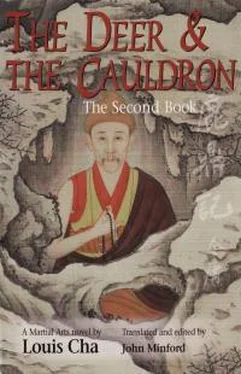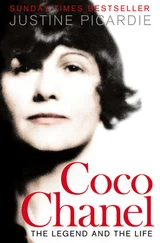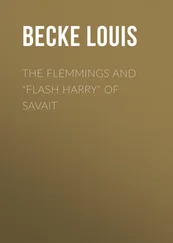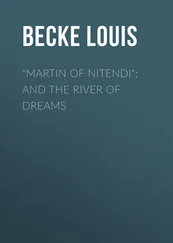SINGSONG’GIRL This all’purpose term covers a variety of different types of women who offered their services for hire in traditional Chinese cities. At the top level, they were skilful musicians (their preferred instrument being the four’stringed piba), they were writers and performers of lyrics, trained dancers, geisha’like courtesans, rather than simple prostitutes. Such high’level singsong’girls would be regularly invited to entertain at official banquets. They often had long’standing relations with prominent members of society, and as the eminent Dutch expert in these matters, Robert van Gulik, points out in his study Sexual Life in Ancient China, they offered their clients not just carnal pleasure, but ‘a welcome relief from the often oppressive atmosphere of the women’s quarters and the compulsory sexual relations’ that characterized the typical Chinese upper’class household. (An excellent depiction of this demi’monde in nineteenth’century Shanghai can be found in the recent film by Hou Hsiao’hsien, Flowers of Shanghai, itself based on a well’written novel from the last years of the Manchu dynasty.) Trinket, on the other hand, delights in using the term of abuse ‘whore’, and his own mother, Spring Fragrance (in Chinese culture, Spring was always the ‘code’word’ for anything erotic, and anything to do with ‘flowers’ suggested sexual pleasure), belonged to a much lower category of singsong’girl. She was just a working prostitute at the brothel known as Vernal Delights. But even she undoubtedly had acquired certain basic non’sexual entertaining skills as well, since her establishment was a highly successful one and functioned as a meeting’place for middle’class merchants and well’to’do low’life characters like Whiskers Mao.
SNAKE ISLAND This whole theme, of the dangerous heretical sect based on an offshore island in the Gulf of Bohai, and the threat it posed to the Manchu dynasty, seems to have been loosely inspired by the historical episode involving the last real military opposition to the Manchu conquest-Yuang Chonghuan, Mao Wenlong, Kong Youde, and the Ninety’Seven Dare’Devils of Pidao (literally, Hide, or Skin, Island), for all of which see Cha’s early (and still untranslated) novel The Sword Stained with Royal Blood (Bixuejian). This episode also forms the background to several characters in Deer’ the Old Whore (who is the daughter of Mao Wenlong); the White Nun, alias Tribulation, formerly the Princess Royal, and lover
(in Cha’s earlier novel) of Yuan Chonghuan’s son Yuan Chengzhi; and Lady Iron Hand, the Lady Warrior in the yellow tunic. SPIRIT TABLET (lingpai or lingwei) These tablets, usually made out of wood, represented the souls of the deceased and were placed before a coffin (except in the case of the victims of the Ming History Inquisition, where there was no coffin, and the tablets were placed by the widows in a special shrine). Robert Morrison explains the spirit tablet as follows in his Dictionary (1820)’ ‘Incense is burnt before it, and a sort of worship paid to it morning and evening for forty’nine days. At the end of a hundred days the Buddhist or Taoist priests recite certain prayers and then burn it.’ STRYELTSI The ‘ambitious’ or ‘energetic’ elements; musketeers of the unreformed standing army of Russia, subverted by Princess Sophia. TABOURET A large barrel’shaped item of furniture, made out of wood, stone, or porcelain. TAMARDY! A made’up word approximating to the sound of Trinket’s favourite term of abuse, which he teaches his friend Misty (Kang Xi) early on, and which Rang Xi delights in using himself, as an antidote to the sheer boredom of Palace discourse. The Chinese expression on which it is based (tamade), still very much in use today, means literally’… his’her mother!’, the operative verb having been (of course) omitted. In the standard dictionaries it is euphemistically translated ‘damn it!’ or ‘blast it!’. A Yangzhou’dialect variant frequently on Trinket’s lips (lakuai’mamade) is (very freely) translated here as ‘hot popping momma’s’. (This trademark expression of Trinket’s has even been the subject of a learned academic paper.) Terms of abuse are one of the translator’s recurring nightmares. Abusing one’s enemy’s mother is a habit common to many cultures. But the cultural associations behind such expressions can be extremely complex. TAOIST NUNS These ladies were known to follow a much freer regime than their Buddhist sisters. Like Taoist monks, they kept their hair, and in many other ways enjoyed considerable liberty in their lifestyle. During the Tang dynasty, there were several Taoist nuns in the capital, Chang’an, famous for their beauty and their literary talent. They were much sought after by the young literati of the time.
THREE FEUDATORIES (san fan) The Chinese umbrella term used for the three southern warlords of the early Manchu period’ Wu Sangui (overlord of Yunnan and Guizhou, and of parts of Hunan and Sichuan, most commonly referred to in the novel as the Satrap, because of his overriding ambition); Geng Jimao and his son Geng Jingzhong (overlords of the coastal province of Fujian); and Shang Kexi and his son Shang Zhixin (overlords of Guangdong and parts of Guangxi). They were all ethnic Chinese who had sided with the Manchus (in the case of the Gengs this affiliation went back to the grandfather Geng Zhongming) and had been rewarded with special privileges’ they were given the rank of Prince (Wu’s tide was Prince of the West), were allowed to marry Manchu wives, and held sway in their domains as virtually autonomous rulers. Between them they controlled an area the size of France and Spain combined. Their joint rising against Kang Xi (historically beginning in December 1673, and not crushed until 1681), is commonly referred to as the Rebellion of the Three Feudatories. It was the first major challenge to Manchu authority during the reign of Kang Xi, and his decision to accept the Three Feudatories’ ‘offers of resignation’ (see Chapter 23), thereby provoking a showdown and the threat of civil war, met with considerable opposition from his own Manchu statesmen. Throughout his life he reminisced about how shaken the war had left him, and how bitterly he regretted the loss of life that had followed his decision … But he never regretted the decision itself.’ (Spence, The Search for Modem China, p. 53) The war lasted eight years, and covered ten provinces.
TREATY OF NERCHINSK The whole Nerchinsk story is told in Du Halde’s The General History of China, based on Jean’Francois Gerbillon’s account (he was Kang Xi’s Jesuit advisor, who accompanied Songgotu and company to Nerchinsk). I quote’ ‘It (Chinese Tartary) contains but one Town called Merghen…, which was built by the Emperor and fortified with a little garrison. In every other part are nothing but Huts run up at pleasure. The Moscovites indeed had once a fortress here, which they called Albazin, and the Tartars Yacsa, from a little River on which it stood,
on that part of it where Yacsa discharges itself into Saghalien oula. It was this Fortress which occasion’d the War between the Moscovites and the Emperor of China; for the Moscovites having a strong Garrison hindered the Chinese from hunting sables in that Neighbourhood. But at length the Fort was demolished and the Country entirely submitted to the Emperor of China by the Treaty of Peace at Niptchou. From the Ruins of Fort Yacsa, to the Fall of the River Saghalien oula into the Eastern Ocean, is at least 400 leagues’ (Watts’ edition, 1741, vol 4, starting on p 147). TRIAD CATECHISM The lines of verse exchanged by Trinket and Kang Xi in Chapter 25 are nearly all to be found in the excellent study of Triad history and ritual by the nineteenth’century Dutch sinologist Gustave Schlegel, The Hung League, or Heaven Earth League (Batavia, 1866). This study itself was made possible by the accidental discovery by the Dutch Colonial Police of a cache of secret Triad books (in 1863, on the island of Sumatra). As the writer points out, whereas in China proper the secret society was aimed at overthrowing the Manchus, in places such as the Dutch East Indies it was aimed against the colonial power. TREASURE The treasure buried in Mount Luding turns out to be the great anti’climax of Deer. The map indicating its exact whereabouts was concealed in eight copies of a sutra, which many people went to enormous lengths to find. Having served as a motor of intrigue and adventure throughout the First and Second Books, the treasure simply fizzles out in the Third. In the end, Trinket decides not to bother with it. This can perhaps be seen as the ultimate debunking of the Martial Arts genre by Louis Cha, for whom Deer was a sort of Chinese Don Quixote, a pastiche of the traditional novel of Chinese chivalry, his personal farewell to the genre. TUNGUS The Tungus were a broad ethnic grouping of the peoples of the North’East that included the Jurched and Manchus. ULA GRASS One of the Three Treasures of Manchuria (the two others being ginseng and sable fur). As explained to Trinket by the Manchu Songgotu, this grass, when stuffed inside a person’s shoes (like a sort of thermal in’sole), has the invaluable property (in the frozen North’East) of keeping the feet warm. VALIANTS (xiaojiying) The Valiant Regiment was the Emperor’s personal cavalry regiment (cf. the Household Brigade), attached to the Plain Yellow Banner. It was in this regiment that Trinket was appointed Colonel before his visit to the Satrap in Kunming.
Читать дальше












